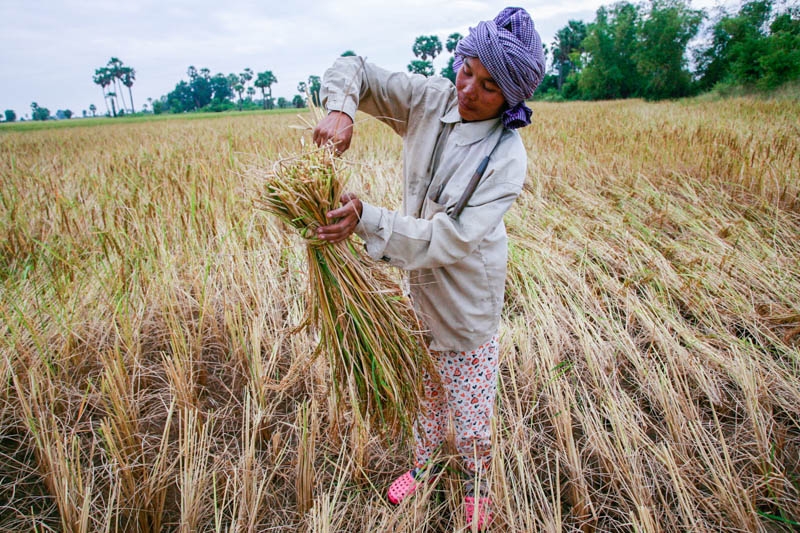Cambodia: Economist warns over threat to rice exports
A senior economist from the Asia Development Bank has warned the EU’s ban of Tricyclazole could damage Cambodia’s agriculture sector, as farmers rush to eradicate the use of the fungicide by June.
The strict new limits on pesticides will mean rice exported to the EU must not contain more than 0.01 milligram of the chemical per kilogram of the grain.
Speaking at the launch of ADB’s annual economic report, ADB country director for Cambodia Samiuela Tukuafu said an EU export ban would harm farmers and the national economy, since agriculture exports equate to about 30 percent of the country’s gross domestic product.
“A ban would have a sudden impact on the farming community, because a lot of farmers depend on exports, particularly to the EU,” he said.
According to the ADB report, the agriculture sector is projected to grow by 1.8 percent this year, assuming favorable market and climate conditions.
The report also says the Cambodian economy will remain strong over the next two years, expanding by about 7.1 percent. This will be driven by solid garment and footwear exports, construction and real estate development, rising government expenditure and a moderate increase in agricultural production.
Last year, Cambodia exported about 542,144 metric tons of rice, of which 63 percent went to 25 countries in the EU, according to the Agriculture Ministry.
The EU commission recently told Cambodia’s milled rice industry to stop the use of Tricyclazole by June or face export bans.
But Hun Lak, vice-president of the Cambodia Rice Federation, said educating farmers on eradicating the use of the fungicide and finding alternatives will take time.
“We think the deadline is too soon,” he said. “If farmers keep using Tricyclazole, it will be a big problem and we will not be able produce rice for export to the EU.”
Hean Vanhan, director-general of the Ministry of Agriculture, Forestry and Fisheries’ general directorate of agriculture, said officials will organize workshops this month to spread the word on Tricyclazole.
However he said farmers and millers are still exporting rice that was harvested last year, when the fungicide was in use, which could cause problems when new measurements on chemicals come into force in July.
In the short term, he said government will help ensure that only rice from producers who can prove they didn’t use Tricyclazole last year is exported to the EU.
“We are preparing other fungicides for farmers to use instead and are educating them on how to use products correctly,” he said.
Agriculture Minister Veng Sakhon said recently the ministry has yet to receive any formal letter from the EU regarding a potential ban on exports of rice. He said the EU should allow Cambodia a year to comply with the new rules.
“We have yet to receive any the formal letter from EU, but we have to prepare to avoid a crisis in Cambodian rice exports. We are now taking action,” Mr. Sakhon said. “We will ban all Tricyclazole imports, collect unused stocks and raise awareness among farmers.”
Source: http://www.khmertimeskh.com/news/37369/economist-warns-over-threat-to-rice-exports/


 Thailand
Thailand




